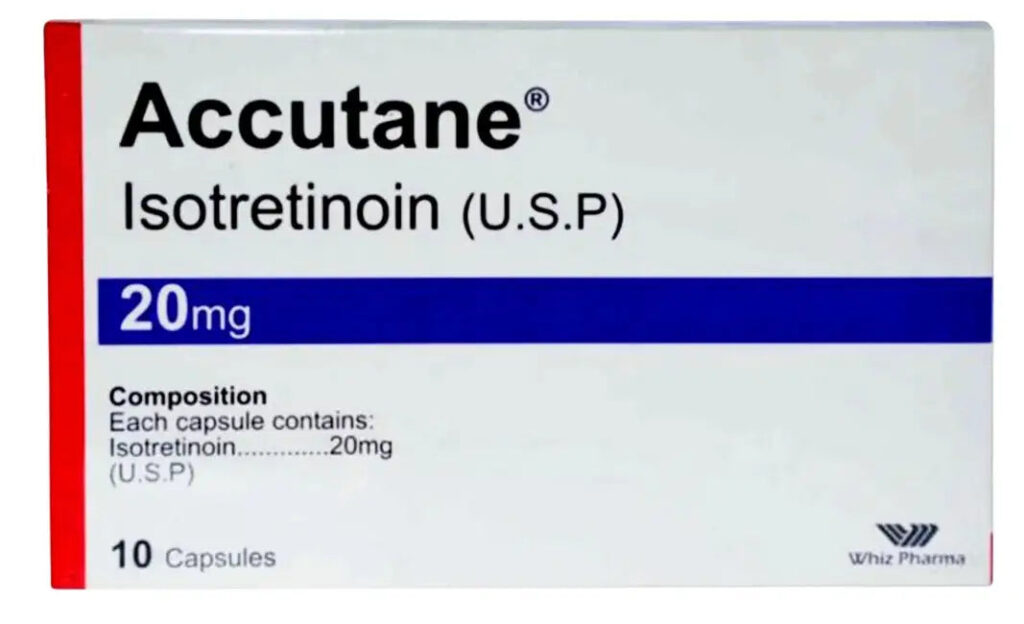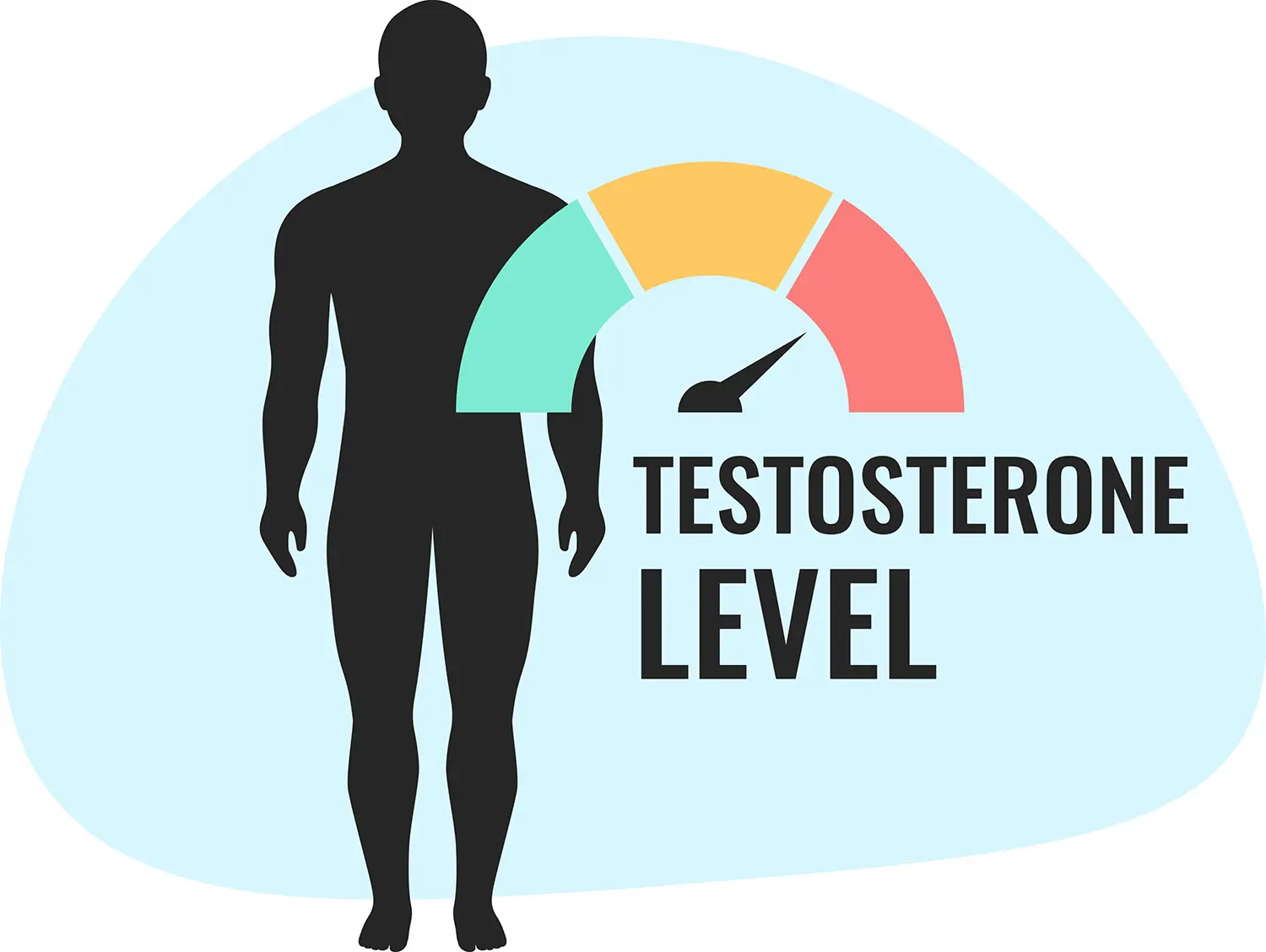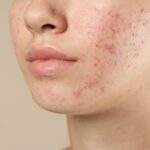Current research shows no proven cause-and-effect link between Accutane and Crohn’s disease, even though a few case reports have suggested a connection. Most large cohort studies and case-control analyses show that isotretinoin exposure does not significantly raise the risk of developing inflammatory bowel disease.
Many experts believe that shared inflammation pathways between the skin and the gut led to earlier confusion. Individuals with Crohn’s disease should continue to be closely monitored during any acne treatment to ensure their safety and comfort.
At DermOnDemand, board-certified dermatologists, such as Dr. Alicia Atkins, focus on providing patients with clear, science-based answers. This guide explains how isotretinoin works, what research says about intestinal health, and how experts ensure treatment remains safe for all patients.
Key Takeaways
- Most studies show no proven link between Accutane and Crohn’s disease, and isotretinoin remains safe when prescribed under medical supervision.
- People with controlled Crohn’s can usually take isotretinoin, but they should work closely with their dermatologist and gastroenterologist to monitor any digestive changes.
- Large cohort and case-control studies, including data from the Food and Drug Administration (FDA), have found no significant increase in inflammatory bowel disease among users of isotretinoin.
- Mild digestive symptoms can occur during treatment but typically resolve once therapy ends, and long-term damage is considered rare.
- At DermOnDemand, Dr. Alicia Atkins and her team provide personalized, evidence-based dermatologist-recommended acne treatment that prioritizes both skin results and digestive safety.
Understanding Crohn’s Disease
What Is Crohn’s Disease
Crohn’s disease is a long-term type of inflammatory bowel disease IBD that causes ongoing swelling in the digestive tract. It often affects the small intestine and colon. Typical signs include abdominal pain, diarrhea, fatigue, and weight loss.
The disease develops when the immune system mistakenly attacks the intestinal lining, resulting in inflammation that can fluctuate in severity.
Although there is no cure, many treatments help reduce inflammation and improve the patient’s quality of life. Managing Crohn’s requires medication, dietary changes, and regular medical care to prevent serious complications like ulcers or intestinal narrowing.
Common Symptoms
Symptoms can vary from person to person. Common ones include frequent diarrhea, cramping, and unintentional weight loss.
Some people also experience blood in stool, joint pain, or skin irritation. Because these signs overlap with other digestive issues, doctors often use blood tests, stool samples, and colonoscopies to confirm the diagnosis.
Can Accutane Cause Crohn’s Disease

What Research Says About Isotretinoin and Crohn’s
Isotretinoin (Accutane) is a powerful medication used to treat severe acne vulgaris. It works by shrinking oil glands and reducing the amount of bacteria in pores. In the early 2000s, several studies suggested a potential connection between isotretinoin exposure and inflammatory bowel disease.
However, later research, including cohort studies and results from nested case-control studies, did not confirm a consistent relationship.
In one case-control study, the odds ratio was 1.10 (95% CI, 0.68–1.95), indicating no significant increase in risk. Other studies even found lower risk rates, such as 0.68 95%5 CI 0.43–1.36).
Most experts, including Dr. Alicia Atkins, agree that isotretinoin can be used safely when prescribed by an experienced dermatologist and monitored correctly.
Does Accutane Make Crohn’s Worse
For people already living with Crohn’s, results are mixed. Some case reports describe flare-ups after isotretinoin use, while others show no changes in disease activity.
Studies comparing people exposed to isotretinoin with those who were not found no major differences in symptom severity. Experts conclude that isotretinoin does not directly worsen Crohn’s disease, but it may cause temporary digestive discomfort in patients who are sensitive to it.
Evidence Against a Proven Connection
Large-scale reviews comparing isotretinoin users with those taking antibiotics or oral contraceptives for acne found no rise in IBD cases. One review showed a risk near 0.68 (95% CI 0.43–1.36), a number too small to be meaningful.
The Food and Drug Administration (FDA) continues to review reports but has not issued any warning that connects isotretinoin to Crohn’s disease and ulcerative colitis. Current evidence suggests that Crohn’s disease and Accutane are not causally linked, although monitoring remains important.
How Researchers Study the Link Between Accutane and Crohn’s Disease
How Researchers Study the Link Between Accutane and Crohn’s Disease
Scientists use various study models to explore potential links between Accutane and digestive conditions, such as Crohn’s disease.
- Cohort studies track large populations over time to see if those taking isotretinoin develop inflammatory bowel disease IBD more often.
- Case-control studies compare individuals with Crohn’s disease to those without it to assess prior exposure to isotretinoin.
- A nested case-control study combines elements of both designs for enhanced accuracy.
Some results show odds ratios around 1.10 (95% CI 0.68–1.95), while others show lower values, such as 0.68 (95% CI 0.43–1.36), suggesting no strong link. Because study sizes and methods differ, findings are not always consistent.
As Dr. Alicia Atkins from DermOnDemand explains, a single result cannot prove cause and effect. Most evidence still suggests no confirmed connection between Accutane and Crohn’s disease.
Accutane and Digestive Health
Does Accutane Affect the Gut
Isotretinoin can affect the body’s mucous membranes, including those in the digestive system. Some users report mild constipation, bloating, or heartburn during therapy.
These side effects typically subside once treatment is completed. Long-term digestive damage is rare, but the drug administration continues to monitor safety data to protect patients.
Why It’s Often Linked to Crohn’s Disease
Digestive issues sometimes appear during isotretinoin therapy, which can lead to confusion. Acne and Crohn’s share similar inflammation processes, and both conditions often affect young adults.
Due to this overlap, some people mistakenly assume one causes the other. Structured cohort studies help distinguish between coincidence and cause, showing that they are usually unrelated.
Can Lifestyle or Diet Affect Crohn’s Symptoms
Yes. What you eat and how you live can affect Crohn’s symptoms. Doctors recommend staying hydrated, eating smaller meals, and limiting the consumption of processed foods.
During flare-ups, soft or low-fiber foods can help ease discomfort. At DermOnDemand, dermatologists remind patients that healthy routines support both skin and digestive balance while using isotretinoin safely.
Taking Accutane with Crohn’s Disease

Can I Take Accutane If I Have Crohn’s?
People with controlled Crohn’s disease can often use isotretinoin safely under medical supervision. Dermatologists work closely with gastroenterologists to ensure both skin and digestive health remain stable. The goal is to treat acne effectively while protecting the intestines from stress or inflammation.
When Doctors Recommend Alternatives
If Crohn’s symptoms are active, doctors may suggest different treatments such as topical retinoids, antibiotics, or hormone-based therapies like oral contraceptives. These alternatives can still reduce acne without affecting digestion. Choosing the safest option helps maintain a quality of life and clear skin simultaneously.
How Specialists Monitor Digestive Health
During isotretinoin therapy, patients are advised to watch for abdominal pain, blood in stool, or ongoing diarrhea. Regular check-ins help detect any warning signs early.
At DermOnDemand, Dr. Alicia Atkins and her team use teledermatology tools to review symptoms and adjust doses as needed. This rapid response ensures that treatment remains both safe and effective.
When to Talk to Your Dermatologist or Gastroenterologist
If you experience new or worsening digestive symptoms, please consult your doctor immediately. Early communication prevents complications and avoids unnecessary worry.
Through DermOnDemand’s secure portal, patients can send updates at any time and receive prompt expert guidance. This approach ensures the safest experience possible during isotretinoin treatment.
Patient Safety Tips During Isotretinoin Treatment
Small daily habits can help reduce side effects during therapy:
- Drink plenty of water and eat balanced meals.
- Avoid alcohol and high-dose vitamin A supplements.
- Regularly monitor liver and cholesterol levels through blood tests.
- Inform your doctor about any new medications, especially antibiotics or hormonal treatments.
Following these steps helps ensure the safe and predictable use of isotretinoin.
Accutane Side Effects Beyond the Skin
How Isotretinoin Works in the Body
Isotretinoin reduces oil production, prevents clogged pores, and inhibits bacterial growth in acne-prone skin. It also affects cell renewal, reducing the deep inflammation seen in severe acne vulgaris.
Because it affects the entire body, it can impact the eyes, liver, and digestion. The Food and Drug Administration reviews all safety data to ensure consistent patient protection.
Common and Long-Term Side Effects
Short-term effects include dry lips, dry eyes, and sensitivity to sunlight. Some users may experience mood changes or temporary increases in cholesterol levels. Rare long-term effects, such as inflammatory bowel disease IBD, are still being studied.
Learn more about the side effects of isotretinoin and how doctors monitor them during treatment. Patients should always follow medical instructions and avoid excessive vitamin A intake, as it can increase the risk of toxicity.
Legal and Safety Considerations
Is There a Lawsuit for Accutane and Crohn’s Disease
Years ago, lawsuits claimed that Accutane caused ulcerative colitis UC or Crohn’s disease. Many cases cited isolated case reports without solid evidence.
Later reviews showed mixed results, including a few small studies that reported risks, such as 4.36 (95% CI 1.25–15.23); however, larger studies found no increase. Most courts dismissed these claims after newer research clarified the weak link between Crohn’s and Accutane.
What Legal Cases Reveal About Safety
Legal reviews improved drug safety standards. The FDA introduced stricter post-marketing rules, updated warning labels, and enhanced patient education programs.
Today, isotretinoin is prescribed under tight safety protocols to ensure informed consent and pregnancy prevention. These measures ensure patient safety while still allowing access to an effective acne medication.
Bottom Line
What Current Evidence Suggests
Current data do not confirm a direct relationship between Crohn’s disease and Accutane. Some individual case reports mention digestive inflammation after isotretinoin use, but most cohort studies and nested case-control studies show little to no risk.
The numbers remain too low to prove causation. Dermatologists, such as Dr. Alicia Atkins, continue to review the latest research to ensure that patients receive safe, reliable, and personalized acne care.
Frequently Asked Questions About Accutane and Crohn’s Disease
Current research shows no proven cause-and-effect relationship. Large cohort studies and case-control analyses find no clear increase in risk. Isotretinoin remains a safe and effective acne medication when prescribed and monitored by a dermatologist.
Yes, many patients with stable Crohn’s can take isotretinoin safely. Your dermatologist and gastroenterologist should coordinate care to monitor digestion during therapy. If symptoms flare, your doctor can pause treatment or adjust dosage.
Report any new digestive issues such as stomach pain, diarrhea, or blood in stool. These are rare but worth checking early. Regular follow-ups, hydration, and a balanced diet help maintain comfort and safety.
Evidence suggests it usually does not. A few case reports mention temporary changes in symptoms, but most patients experience no difference. Dermatologists, such as Dr. Alicia Atkins at DermOnDemand, closely monitor each case to ensure optimal results.
Short-term effects include dry lips, dry skin, and sensitivity to sunlight. Less common ones are mild fatigue or increased cholesterol levels. Long-term digestive issues remain extremely rare and under study.
Conclusion for Patients Considering Accutane
- Tell your dermatologist if you or family members have inflammatory bowel disease IBD.
- Monitor any digestive changes and report them quickly.
- Maintain communication between your dermatologist and gastroenterologist.
- Remember that clear skin and digestive stability can coexist with the right supervision.
At DermOnDemand, Dr. Alicia Atkins and her expert dermatology team provide evidence-based, personalized care. With secure telemedicine and same-day prescription services, patients receive guidance backed by the latest science, helping them achieve results safely and confidently.








